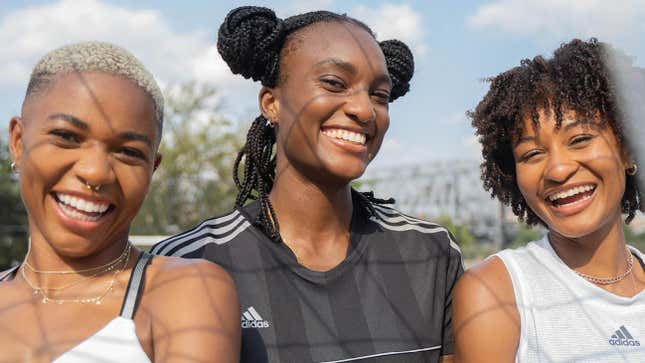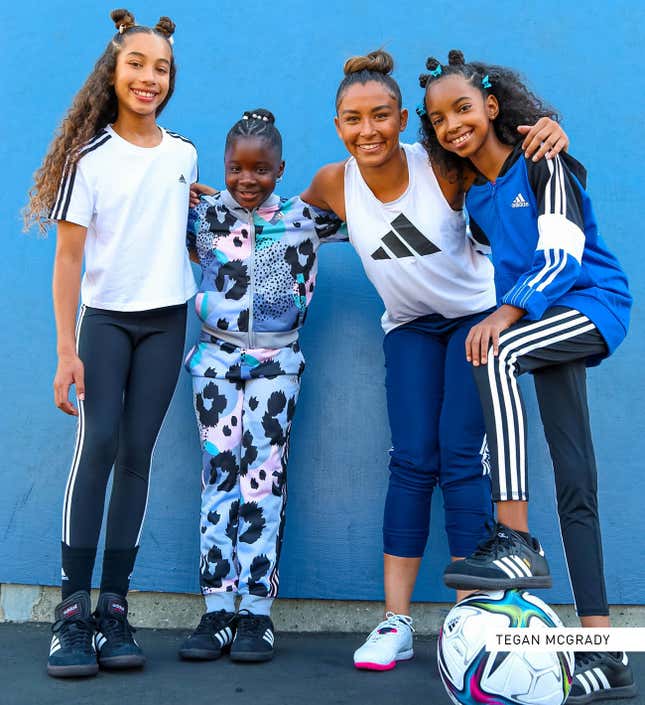
When the National Women’s Soccer League finally returned to play last summer in the aftermath of the officer-related murder of George Floyd, dozens of players used the league’s Challenge Cup tournament as a platform to express their frustrations with the racial climate in this country. By kneeling in protest during the national anthem, these players refused to allow the continued plight of Black Americans to go unheard and stood in solidarity with countless athletes throughout other professional sports leagues.
In response to NWSL players exercising their right to free speech (and others declining to do so), the league issued a statement addressing the matter that many of its players felt was tone-deaf—especially since they weren’t even consulted prior to its release.
“They were addressing the fact that some players were standing and some players were kneeling at the time,” Ifeoma Onumonu, forward for NJ/NY Gotham FC, explained to The Root. “And so a statement was made such as, ‘Regardless of your stance, we are all in this together.’ And I was like, ‘When did we say that?’ We never said that if you are standing above me, you’re not standing with me—you’re not kneeling with me. You can’t be with me and be doing something else. That’s just not a thing.”
It was at that moment, and in the ensuing chaos, that Black players throughout the league realized that in order to ensure that the challenges they faced as Black women in soccer were properly addressed, they would have to advocate for themselves. Soon after, the Black Women’s Players Collective was formed to elevate the image and representation of Black women and girl athletes in soccer and society.
“[We’re] geared towards driving change within this sport,” Onumonu said. “I think that for a long time, a lot of us have remained silent on some of the issues that have we have faced in this league, in this sport, in general, and in our lives. And this collective was really just made to offer that support for all the players just because we are a minority in the NWSL.”
To that end, the BWPC has partnered with Adidas to break down barriers and address the myriad disparities within the sport by developing programming that focuses on providing soccer access to under-resourced communities and creating opportunities for the next generation of superstar athletes. This includes hosting annual soccer clinics and programming in cities like Atlanta, Ga.; Durham, N.C.; Orlando, Fla., and Houston, Texas, for young girls between eight to 15.

“Black players and players of color are really a minority in soccer,” Imani Dorsey, who also plays for NJ/NY Gotham FC and serves as a board member on the BWPC, explained to The Root.
“In the culture of the sport in this country, in particular, it oftentimes doesn’t feel as much of a safe, inclusive, or welcoming space to those players as well. [...] I think that’s definitely why us coming together as the Black Women’s Players Collective is so important because it’s giving us a voice that we previously felt wasn’t being heard. Or that it didn’t matter to the people that we were playing with and playing around.”
Aside from partnering with the U.S. Soccer Foundation, Black Players for Change, and sports manufacturer, Musco Lighting developed 12 new mini-pitches in predominately Black communities across the country. By 2022, the BWPC will be hyper-focused on addressing misconceptions about professional athletes that are often rooted in how they are portrayed, which deters Black people from supporting or pursuing the sport themselves.
“I think they don’t see themselves represented,” Dorsey said. “When I went to professional games or college games as a kid and I saw no Black women on the field, or maybe one, it affects you for sure. It makes the sport feel less attainable or less accepting of who you are as a Black woman. And that breaks my heart because I know the opportunities that [soccer has created for me].”
She continued, “We talk about our league and our league logo. It looks like a white girl, and that’s just one little example. But the representation has to be more across the board, [in regards to] diversity, inclusion, and acceptance. [It has to be] more welcoming.”
And in partnering with Adidas, the BWPC hopes to pursue even loftier goals that will yield more tangible results within women’s professional soccer that will reverberate into other sports.
“We want to encourage young Black girls to dream big and not limit their perspective at all. And I think that’s really where this partnership with Adidas is so crucial because it’s like we need the money and manpower to be able to [launch these initiatives] across the country,” Dorsey said. “Having the coordination and backing of Adidas is really important in getting us into the communities that we want to be in.”
To learn more about the Black Women’s Players Collective and its partnership with Adidas, visit their website.

